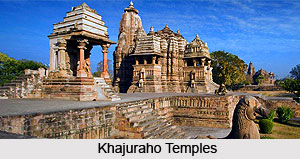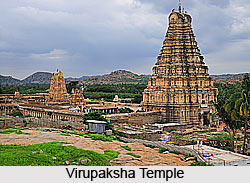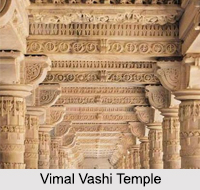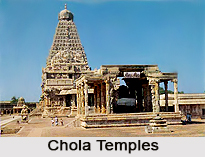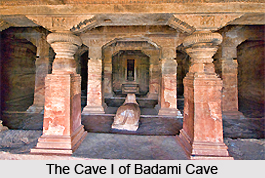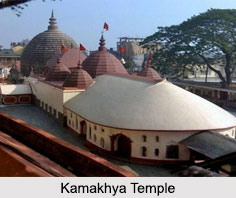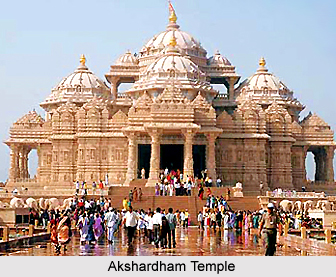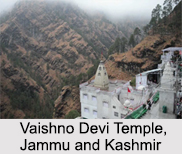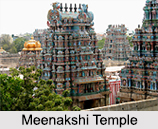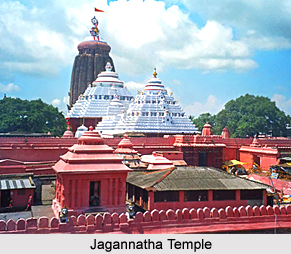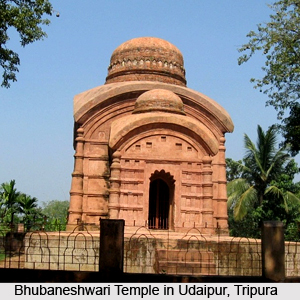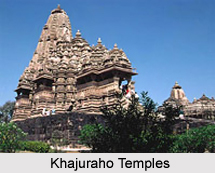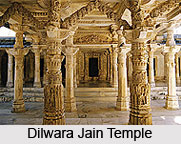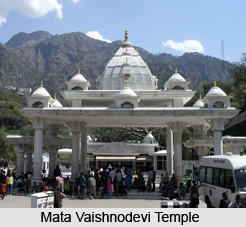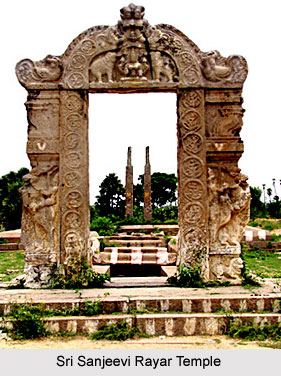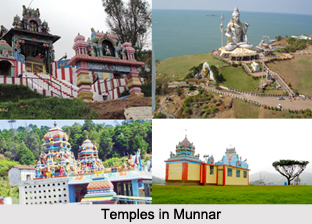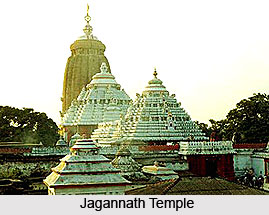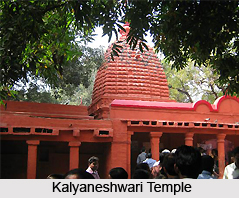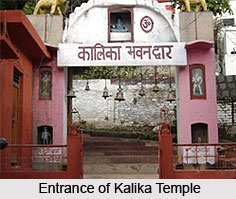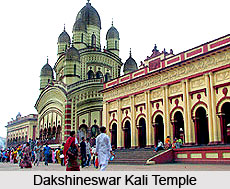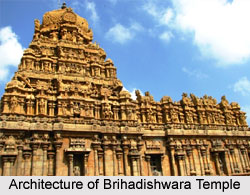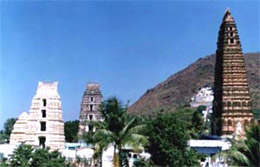 Location: Vijayawada
Location: Vijayawada
Deity: Laxmi Narasimha
The temple is located on top of Mangalagiri hill. The history of the temple is recorded in Brahma Vaivarta Purana. Mangalagiri hill (or auspicious) is part of the Eastern Ghats and is one of the eight important places or mahakshetras where the lord resides. The origin of this temple is traced to Krithayuga. The temple is situated halfway up the hill. The mountain is shaped like a reclining elephant when seen from a distance.There is no idol in the temple except that of Lord Narasimhaswamy, whose face alone is sculptured in the hill itself.
Offerings: Jaggery water or panaka is offered as naivedya to the lord. It is actually poured into the mouth of the Lord, till part of the water gets thrown back as prasada. Onlt then the lord is said to be satiated. While water is poured one can hear the gurgling sound clearly as if the Lord is drinking, and the sound continues till the moment the water gets thrown out. This happens for every devotee who offers the jaggery water. Hence the temple is called Panakala Nararsimhaswamy temple.
Legend: The Sthalapurana states that Pariyatra, an ancient king, had a son called Hrusva Sringi who was born with a number of physical deformities. Hrusva Sringi went on a long pilgrimage and finally came to Mangalagiri and stayed here for three years. All the gods advised him to continue with his penance at Mangalagiri. But King Pariyatra was not pleased with this and came to the hill to dissuade him, threatening to take away his kingdom. Hrusva Sringi, knowing that he would not be able to decline his father assumed the shape of an elephant and became Mangalagiri, the hill. His body serves as the abode of Lord Narasimha, hence the mountain is considered very holy. Later Narasimha killed the demon called Namuchi with his Chakra and installed himself on this hill. The popular legend is that the offerings to this Lord varied with every age and were honey in Kitayuga, ghee in Dwaparayuga, milk in Tretayuga, and Panaka or jaggery water in this Kaliyug.
Festivals: Brahmotsava lasts for twelve days in March and the other festivals like the Vaikunta Ekadashi day, Sriramanavami, Hanuman Jayanti, and Narasimha Jayanti are also celebrated.
